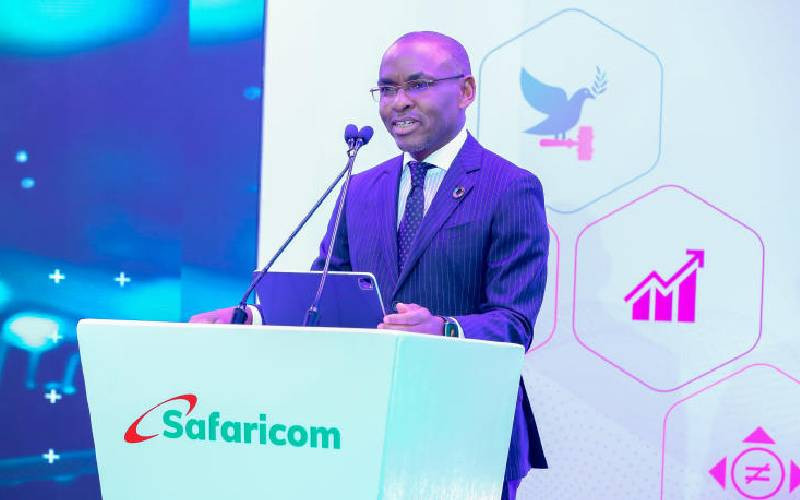



Safaricom, a leading telecommunications company in Kenya, has announced enhancements to its cybersecurity offering for businesses in response to a significant increase in cybercrime incidents in the region [f575dcad]. The company reported a rise in cyberattacks, including ransomware attacks, targeting businesses and locking them out of their systems. Over 50% of all .co.ke websites in the country have been attacked in the past year [f575dcad]. Saccos and supermarket chains with low cybersecurity protections have been particularly affected. To address this issue, Safaricom has revamped its cybersecurity offering, which includes connectivity, cybersecurity, developer operations, disaster recovery and backups, and web hosting. The company aims to provide businesses with fast, secure, and uninterrupted access to their systems, as well as protection against malware, threat assessment and advisory services, system maintenance and development, data backup, and protection against potential threats to business websites [f575dcad].
In the United States, the University of Southern Mississippi (USM) is also taking steps to combat cybercrime [c4e4c304]. USM has recently earned distinction as a Center of Academic Excellence in Cyber Defense (CAE-CD) and offers extensive instruction and hands-on training in cybersecurity. With hackers attempting an average of 26,000 cyberattacks per day in the country, USM recognizes the importance of equipping students with the skills and knowledge to protect against cyber threats. The university offers undergraduate degrees and online programs in computer science, information technology, computer engineering, and cybersecurity. USM emphasizes the significance of continuous education, training, research, innovation, and partnerships with industry and government agencies to stay ahead of cyberattacks [c4e4c304].
The rise in cybercrime incidents globally has prompted organizations and institutions to prioritize cybersecurity measures. The Communications Authority in Kenya reported over 187.7 million cyber threats in the first three months of 2023, with malware-related threats and Distributed Denial of Service (DDoS) attacks being the most common [f575dcad]. The global annual cost of cybercrime is predicted to reach $9.5 trillion in 2024, and the average cost of a data breach was $4.35 million last year [c4e4c304]. Cyberattacks have the potential to disrupt financial markets, target critical infrastructure, and cause disruptions in healthcare systems. Therefore, it is crucial for businesses and educational institutions to invest in robust cybersecurity measures, continuous training, and collaboration with industry and government agencies to mitigate the risks posed by cyber threats.
In addition to Safaricom and USM, St. John’s University in New York City is also making efforts to strengthen cybersecurity [d6308aca]. The university hosted its second annual “Capture the Flag” coding competition, sponsored by the Sanford Family Cyber Security Lab. The event aimed to enhance high school students' strategic-thinking skills and teach them how to secure data and prevent security breaches. The competition involved a coding version of the game “Capture the Flag,” where students had to find hidden text strings in various cybersecurity coding tasks. More than 25 students from four New York City high schools participated in the competition. St. John’s University plans to host another coding competition later this semester [d6308aca].
The University of Arkansas at Little Rock (UALR) has also received a significant boost in its cybersecurity efforts. UALR has been granted $5 million in federal funds to enhance energy sector cybersecurity through education, innovation, and workforce development [251ced69]. This funding will enable UALR to strengthen its cybersecurity programs and initiatives, equipping students with the skills and knowledge needed to combat cyber threats in the energy sector. With the increasing frequency and sophistication of cyberattacks targeting the energy industry, this investment in cybersecurity education and workforce development is crucial to safeguarding critical infrastructure and ensuring a secure energy supply. UALR's cybersecurity enhancements will contribute to the overall efforts in combating cybercrime and protecting vital sectors of the economy [251ced69].